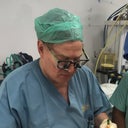Thank you for your message. You may be too young to remember, but concerns about allergies and other adverse reactions to silicone were a big issue in the 1990's. When the silicone implants were initially developed in the 1960's, there was very little research required before medical devices could be used in humans. As the requirements became stricter, more research was required for new devices, but silicone breast implants were "grandfathered", and not required to go through those new requirements.Then, in the early 90's, concerns were raised about whether the silicone in breast implants could cause adverse reactions, especially autoimmune diseases such as lupus and arthritis. As a result, the FDA declared a moratorium on silicone breast implants until they could be more thoroughly studied. Since then, there has been a huge amount of research on silicone gel breast implants, to the point where they are probably the most thoroughly studied medical device ever. In reviewing that evidence, the FDA concluded that silicone gel breast implants were safe, and they were approved for general use in November 2006.While you cannot summarize such a huge body of research in a paragraph (or a RealSelf answer), allergic reactions have not been found. However, there certainly can be local reactions to silicone gel breast implants, as with any foreign material placed into the body.The reaction you describe to certain metals in jewelry is very common, and not related to any allergy to silicone.Each of the silicone breast implant manufacturers has a detailed and thick booklet that they provide to surgeons to provide to patients about the silicone gel breast implants. Your surgeon should give you a copy of that book at your pre-operative visit. If you haven't received it yet, I know they would be happy to give you a copy now, so you can have plenty of time to review it and become more educated. You didn't say whether you were getting silicone gel breast implants or saline breast implants, but they both have silicone. Even though the book is written for patients getting silicone gel breast implants, most of the same info would apply to concerns about the silicone rubber shell of a saline breast implant.As you become more educated, I would point out that there are a few practitioners who have found a niche scaring people about silicone breast implants, and even offering such services as "silicone detoxification", but theirs is a distinctly minority opinion. I can assure you that I, and the overwhelming majority of plastic surgeons certified by the American Board of Plastic Surgery, would not be using silicone gel breast implants in our patients if we had any serious concern about their safety. We certainly wouldn't put them in our family, friends, or staff, as many of us have.But, in the end, you have to decide what you are most comfortable doing. You don't want to have something in your body that makes you concerned. One option would be to change from silicone breast implants to saline (salt water) implants, but those implants have a silicone rubber shell as well.So, my best recommendation would be to contact your surgeon and get a copy of the silicone gel breast implant booklet from the manufacturer of your breast implants, review that on your own and with your surgeon, and work towards a plan that you feel comfortable with.






